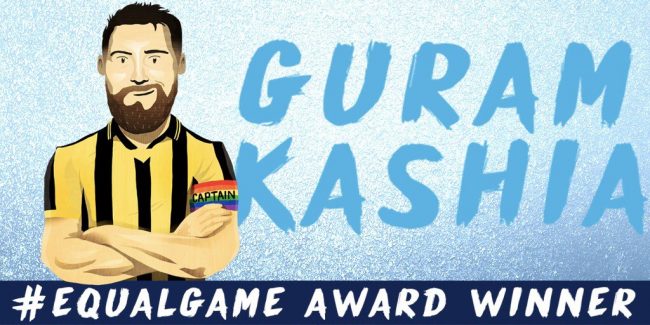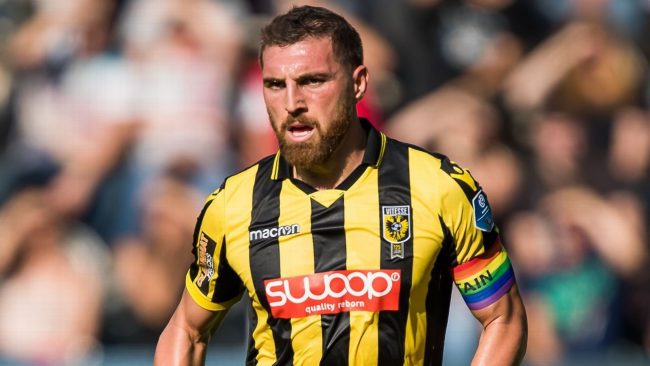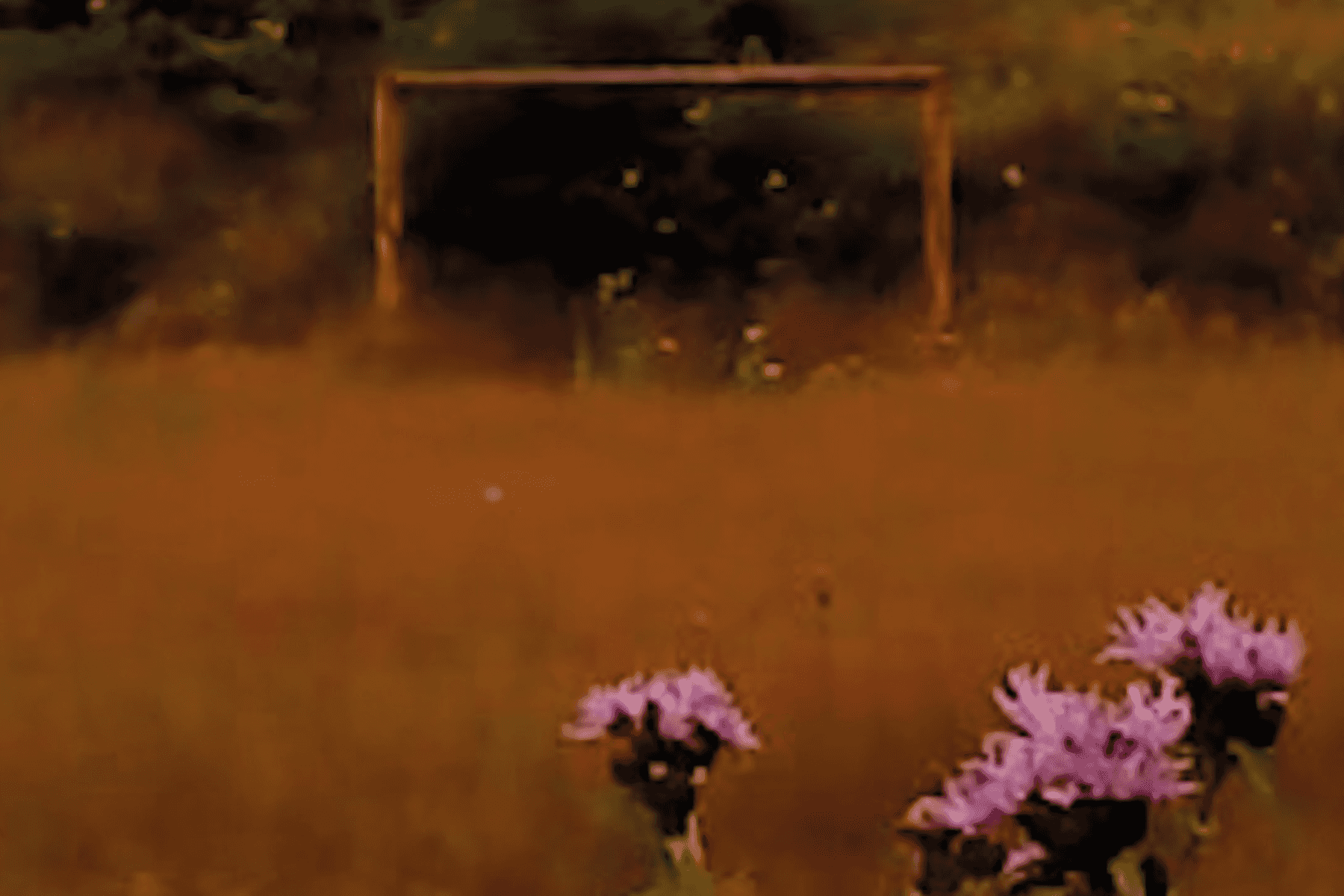

 UEFA has granted the captain of Georgia’s national football team, Guram Kashia, its inaugural #EqualGame award for his ‘courageous public stand for equality’. Last year, Kashia wore a rainbow armband during a game for Dutch team SBV Vitesse, and despite facing heavy backlash in Georgia, made further statements in support of equality.
UEFA has granted the captain of Georgia’s national football team, Guram Kashia, its inaugural #EqualGame award for his ‘courageous public stand for equality’. Last year, Kashia wore a rainbow armband during a game for Dutch team SBV Vitesse, and despite facing heavy backlash in Georgia, made further statements in support of equality.
On Wednesday, the Union of European Football Associations (UEFA) issued a statement with UEFA President Aleksander Čeferin congratulating Kashia ‘for his strong character and his courage’.
‘Guram has taken an important stand to support the LGBT community and equality overall, and deserves to win this award’, said Čeferin.
‘Even though his actions sparked threats and abuse from many groups, he preached tolerance and acceptance, and helped change perceptions of this minority group in his native country of Georgia’, said Čeferin.
Kashia, who now plays in the top American football league for the San Jose Earthquakes, said he was honoured that UEFA chose him.
‘I believe in equality for everyone, no matter what you believe in, who you love, or who you are. I thank UEFA President Aleksander Čeferin for this award, and I will always keep defending equality and equal rights for everyone, wherever I play’, said Kashia.
A post on UEFA’s Facebook page announcing Kashia’s award was met with homophobic abuse from many users. While many congratulated Kashia for his stand, others said they felt offended.
A rainbow armband
While playing as captain of Dutch football club SBV Vitesse in mid-October 2017, 31-year-old Kashia, along with the captains of other Dutch teams, wore a rainbow armband to show support for the queer community. Kashia is also the captain of Georgia’s national football team.

While some in Georgia praised Kashia for the move, he faced heavy criticism online and far-right groups rallied against what they termed ‘gay propaganda’.
Despite the backlash from conservative sections of Georgian society, Kashia said he did not regret wearing the armband and thanked fans for their support. On 25 October, Kashia reiterated his support in a Facebook post, saying he was now ‘focused on upcoming matches’.
‘I entered the changing room and the armband was sitting there. I am the captain, so of course I am responsible for leading my team. This was a normal game I had to play’, Kashia said in an interview with TV channel Rustavi 2 on 31 October.
His stance led a number of conservative and far-right groups in Georgia to demand Kashia be dropped from the national team, but many of his teammates and the Georgian Football Federation (GFF) came to his defence.
GFF head Levan Kobiashvili, a former footballer himself, posted Kashia’s photo to Instagram as a token of support. Zviad Sichinava, a former head of the GFF and mayoral candidate in Zugdidi, also expressed support, joined by fellow-players Aleksandre Iashvili, Tornike Okriashvili, Jano Ananidze, and many others.
Only 23% of Georgians think queer people’s rights are important
A 2018 poll by the National Democratic Institute (NDI) showed a small gain since 2015 in the public support for queer people in Georgia. Nevertheless, queer people remain one of the least supported groups, with only 23% of the Georgian population stating that the protection of their rights was important.
The results of the survey conducted in June 2018 were published on 1 August 2017. It showed a 2% gain in support for queer people compared to 2015, when 21% of the population considered the protection of their rights important.
The results showed that 44% think the protection of queer rights was not important, while 26% have a neutral attitude.
NDI asked a similar question with regard to other minority groups, with 60% answering that it was important to protect the rights of religious minorities, 60% for ethnic minorities, and 93% for people with disabilities.
The survey was carried out for NDI by CRRC Georgia between 23 June–8 July, with 2,409 people interviewed and a 49% response rate. NDI said the average margin of error was +/- 1.9%.
Homophobic violence in Georgia
On 17 May 2018, queer activists marked International Day Against Homophobia, Transphobia, and Biphobia in Tbilisi. A major queer rights rally originally planned for 17 May was cancelled the day before, with activists citing security concerns due to ‘an unprecedented mobilisation of hostile groups’, who they said were preparing for ‘unrest and civil confrontation’.
Instead, queer rights groups organised several unannounced demonstrations in front of various government buildings, reading out their demands to the corresponding branches of government and lighting flares in the rainbow colours.
[Read on OC Media: Queer rights activists hold ‘guerrilla IDAHOTB demonstrations’ in Tbilisi after far-right threats]
In 2017, the Prosecutor’s Office examined 86 alleged hate crimes, 12 of which were based on sexual orientation and 37 on gender identity.
The Public Defender’s 2018 report said violence against queer people, whether in the family or in public spaces, was a serious problem in Georgia, and that the government has been unable to respond to this challenge.
The report said the Public Defender received numerous complaints regarding homophobic attitudes from law enforcement officials.
[Read OC Media’s editorial: Georgia’s government must stop legitimising homophobic violence]
‘In some cases, complainants withdrew cases and refused to cooperate with the general inspection or the Prosecutor’s Office because they didn’t believe an investigation into their cases would be timely’, the report read.
The report said transgender women in particular often appeal to the Public Defender’s Office about the violence they face.
‘Unfortunately, law enforcement officials don’t have an efficient strategy against hate-motivated violence. They react to individual cases and don’t take action against the systematic problem’, the report reads.









